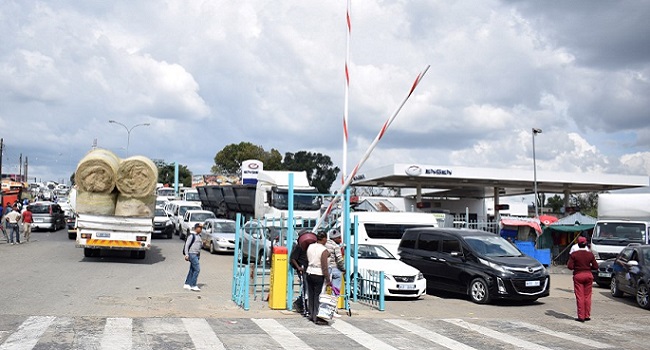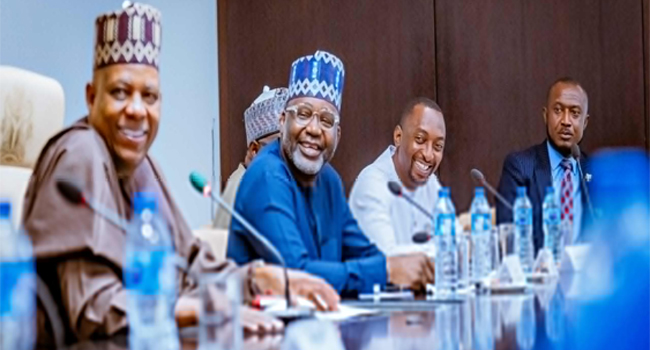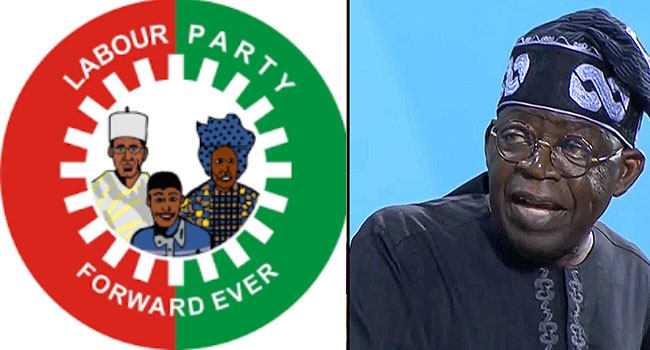
The South African government will unveil its fiscal 2021 spending plans Wednesday as the continent’s most industrialised economy chief Ursula von der Leyengrapples with the fallout from the coronavirus pandemic on top of a recession.
Finance Minister Tito Mboweni traditionally delivers his national budget speech alongside a potted aloe vera plant, highly resistant to drought, as a symbol of South Africa’s economic resilience.
Resilience will be needed after a year of rolling restrictions on movement and business to curb the coronavirus outbreak.
“There’s not a lot of money and we need to have a pro-poor and pro-growth balance,” University of Johannesburg business lecturer Daniel Meyer told AFP.
READ ALSO: EU Chief Seeks ‘Amicable’ Solution As AstraZeneca Admits New Delays
Increasing taxes wont be an option, however, given the pandemic-induced losses and with local elections due this year.
Unemployment in South Africa soared to a record 32.5 percent in the fourth quarter of last year, the highest since records began in 2008.
Mboweni “will have to take more loans to finance the budget,” Meyer said.
But public debt is already expected to reach over 80 percent of GDP this year.
“Debt… is rising out of control,” Meyer warned, noting that a junk status downgrade last year makes government borrowing even more expensive.
“So (Mboweni) will have to cut the (public) wage bill.”
South Africa is the country hardest-hit by coronavirus in Africa.
Last March, it imposed one of the world’s strictest lockdowns, which has been gradually eased over the past year, but the measures to stem the spread of the virus, including a six-month border closure, blocked tourists and capital from overseas.
The global economic downturn brought on by the virus dried up revenues further, stifling emerging markets and compounding pre-existing problems.
– Poverty ‘on the rise’ –
Ahead of the budget speech, trade unions called a strike to protest the high level of unemployment and persistent corruption.
At Chris Hani Baragwanath Hospital in Johannesburg’s Soweto township, about 100 members of the South African Federation of Trade Unions picketed at the hospital’s gate in solidarity with overstretched and underpaid medics.
Wearing red shirts and paying little attention to social distancing guidelines, they danced and chanted to apartheid-era struggle songs while brandishing placards saying “It is time to fight back.”
“Employers have taken advantage of the Covid situation to retrench people… the finance minister must wake to the reality that people are loosing jobs,” said 48-year-old City Bokaba, a coordinator for the union.
In Cape Town — where Mboweni will deliver the budget speech — police fired teargas to disperse protesters, stopping them from marching to parliament.
The African continent has seen foreign direct investment decrease by 25 to 40 percent, and remittances drop by nine percent as a result of the pandemic, according to the UN Conference on Trade and Development.
South Africa, which derives at least eight percent of its GDP from mineral exports, has been particularly hard-hit.
“Poverty is on the rise. Inequality is deepening,” President Cyril Ramaphosa said in an annual address to the nation this month.
Without detailing economic recovery plans, he compared South Africans to fynbos — a local plant species whose growth is stimulated by fires, blossoming directly from the ashes.
“Like all those who have walked this land before us, we will rise again,” an upbeat Ramaphosa said.
He pointed to the potential of job creation through the private sector, citing a recent $1.0 billion investment by US car manufacturer Ford.
The International Monetary Fund meanwhile estimates that South Africa’s economy contracted by eight percent last year, predicting growth of just three percent for 2021.




